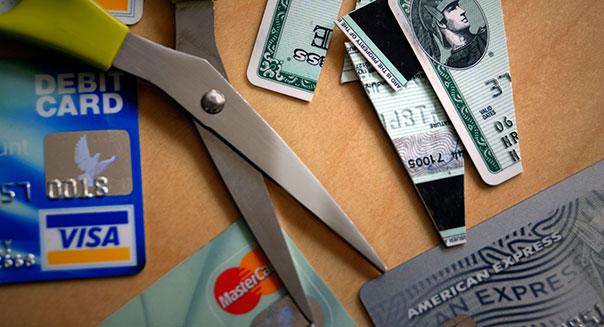Reason to Close Your Credit Card
Dec 23, 2023 By Triston Martin
However, before you go ahead and do that, it is crucial to understand the influence that shutting a credit card will have on your credit score. You should also be aware of what will happen to any credit history linked with the credit card being closed. In many cases, there may be more efficient methods to accomplish your aim of reducing expenditures and decreasing debt.
Why People Close Credit Cards
The following is a list of some of the most typical reasons why individuals decide to cancel their credit cards:
- Spending above your means: If you believe you are spending an excessive amount of money, you may conclude that closing your credit card account is the most effective approach to restore control of your finances and resist the seduction of supposedly painless spending with plastic.
- Inactive cards: If there is a card in your possession that you no longer use, you may feel that it is in your best interest to terminate the account associated with that card. This is particularly true if you must pay an annual fee for using the card.
- Some individuals cancel their credit card accounts to protect themselves from having their identities stolen. This is done to lower the likelihood that their identities would be used fraudulently.
How a Closed Card Affects Your Credit Score?
It is not necessarily the only or the best method to handle these financial concerns to close down all your credit card accounts simultaneously. Because closing an account could have an effect on your credit score, and not in a positive way, depending on your credit history and the current state of your balance about your credit limit, also known as your credit utilization ratio, the reason for this is that closing an account could affect your credit score. How to do it:
Credit History
If you have a horrible history on a card, the urge to terminate the account associated with that card may be strong. The Fair Credit Reporting Act stipulates that negative information should be removed from a credit report after seven years or ten years in the case of bank.
Your line of thought is that if you cancel the account, all bad information will be removed from your record after seven years. But this only holds if the account is kept active and if efforts are made to improve the account's standing by eliminating any outstanding debt and being prompt with all subsequent payments. If you close the account, the ratio of your current amount to your credit limit will increase, making your credit score even worse.
A Ratio of Balance to Limits
Simply dividing your current credit card amount by your available credit limit gives you your balance/limit ratio, also known as your credit usage ratio. This ratio is significant because creditors and lenders use it when determining whether or not to provide you extra credit or a loan. They like seeing that you are making responsible use of the credit you already have available.
The percentage of your available credit being used is the foundation for thirty percent of your credit score. Creditors like to see a low balance in contrast with your limit when evaluating your balance-to-limit ratio. Your credit score will drop if the ratio of your current amount to your credit limit continues to rise, indicating that you are getting closer to the point when you will max out your available credit.

Reasons for Keeping a Credit Card Open
Therefore, before you close an account for one of your credit cards, you should carefully examine your credit report and evaluate the potential impact that this action may have on your credit score. There are occasions in which there are valid justifications for maintaining an active account.
- Instead of Closing a Card, Consider This
- You may take an alternative course of action, broken down into five distinct situations.
When You Want to Rein in Spending
If you want to prevent any future spending on the card, tearing it up may be a better option than canceling the account since it will make it more difficult for you to spend money. Doing so can prevent a potential blow to your credit rating, which might put your ability to meet future financial obligations at risk.
When You Have an Inactive Card
If the credit card doesn't charge an annual fee, it can be in your best interest to keep it open. This is particularly true if you've had it for a long since this will ensure that the history of the card is included in your credit report. Maintaining an open account may also benefit your credit score in another manner, and that is by reducing the percentage of your available credit that is being used.


Taxes
You Need to Avoid the Late-Filing Tax Mistakes
A single digit transposition or omission might significantly alter the reported data. Say you contributed $5,200 to your IRA but only reported $2,500 as the deduction on your return. This would cause you to pay $648 more in taxes (assuming a 24 percent tax bracket) than necessary
Learn More
Know-how
Managing Finances in Small Business: Practical Tips and Strategies
Tips for small business financial management. Strategies for maintaining healthy business finances.
Learn More
Banking
Cracking the Code: A Deep Dive into Personal Identification Numbers (PINs)
Uncover the crucial role of Personal Identification Numbers (PINs) and how they bolster security in your daily life. Delve into the protective mechanisms behind PINs and their integral role in securing your personal information.
Learn More
Know-how
Is Monarch Money Worth It? An In-Depth Analysis for 2024
Discover how Monarch Money simplifies personal finance management with its user-friendly interface, comprehensive features, and educational resources for effective budgeting and goal tracking.
Learn More
Know-how
Discuss Why You Should Get a Home Inspection?
Even if you are purchasing a brand-new house, there are several ways to recoup the cost of doing a home inspection.
Learn More
Banking
Reasons Why I Use A Credit Card To Pay My Monthly Rent
Many people's biggest monthly expense is their rent. Over half of all American renters spend a minimum of 30% of their income on rent, with 23% dedicating at least 50% of their income to rent, according to recent statistics from the Pew Research Center and the U.S. Census Bureau. Given the size of the amount, you may be wondering if you may make your monthly rent payment with a credit card.
Learn More